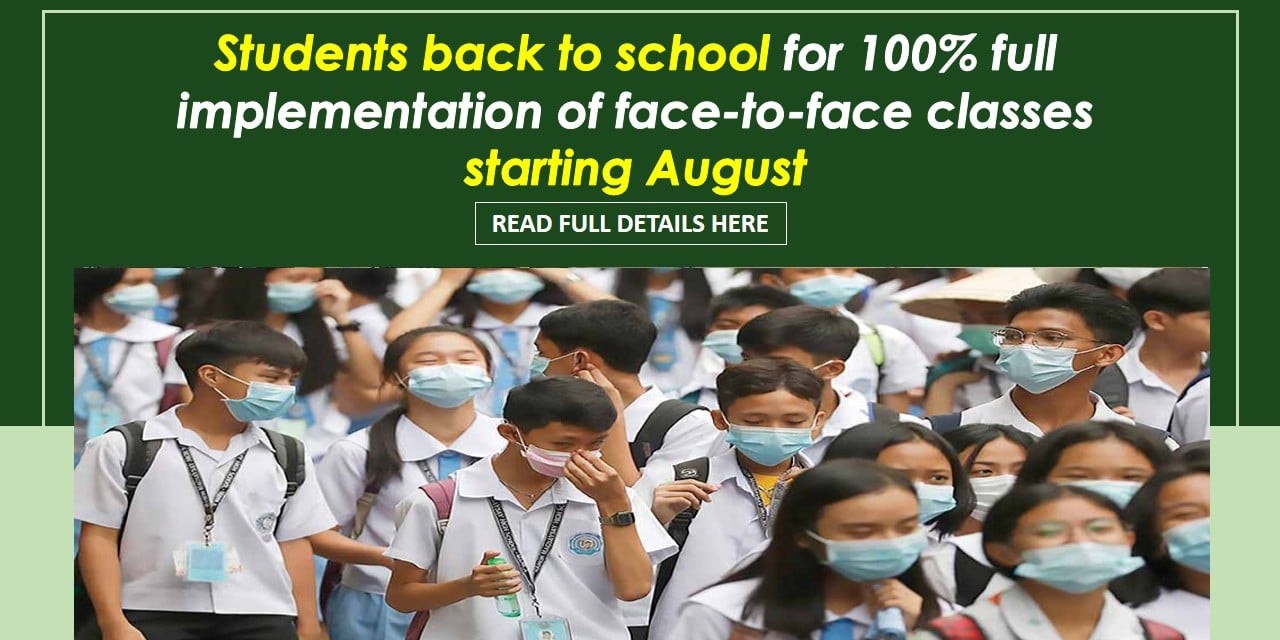On Monday, Education Secretary Leonor Briones confirmed the resumption of in-person sessions at public schools for the upcoming academic year, which will begin on August 22.
During the Laging Handa public briefing, Briones stated, we are expecting the 100-percent full implementation of face-to-face classes.”
Physical classes are only allowed in places with alert levels 1 and 2. She noted, however, that the setup would require the approval of the Inter-Agency Task Force for the Physical classes are only authorized in areas with alert levels 1 and 2.
Challenge
All schools are urged to hold in-person classes while still observing blended learning modalities, according to Education Undersecretary Diosdado San Antonio.
“There will be face-to-face classes on some days and remote learning on other days,” San Antonio stated. “Once the IATF allows all schools to have physical classes, the Department of Education (DepEd) will move that forward.”
According to the DepEd’s May 26 report, 30,033 public schools, or 66.56 percent of the total number nationally, were already holding in-person sessions based on the most recent quick count from regions.
Meanwhile, only 918 private schools (or 7.43 percent) across the country had done so, causing Briones to voice alarm about the situation in a meeting with President Rodrigo Duterte.
“This is a challenge to us … It is ironic that at the height of the debates on face-to-face schooling, there were many crowd demands for face-to-face,” she informed him.
Alert Levels
Briones claims that there is no such issue in public schools since whenever a region or area is placed on alert levels 1 or 2, physical classes are automatically implemented.
However, in private institutions, where school officials had the final say, this was not the case.
In November of last year, the Philippines was the last country to reopen its schools for physical education lessons because of the COVID-19 outbreak.
Participants in the pilot test were limited to pupils in kindergarten through third grade.
Participating schools were obliged to adhere to the safety assessment tool’s criteria, which included strict regulations defined by the IATF, the Department of Health, and the Department of Education. They also had to get permission from local governments and pupils’ parents.
New Secretary
Meanwhile, the transition time between Briones and the future Secretary of the Department of Education, Vice President-elect Sara Duterte, has been planned for June 20 to June 30.
“We need to have a one-on-one [session] so she can be briefed on the different challenges in DepEd,” Briones said, noting that the department’s transition report was also being prepared.
Briones expressed her desire for a “continuity of programs” that were successful during her tenures, such as the Alternative Learning System and the Last Mile Schools program.
She went on to say that she expected “almost all nations (have adopted)” digital learning to continue during the next administration.

